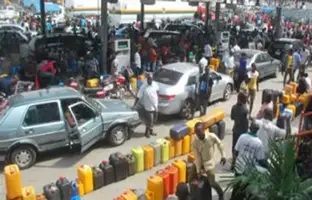Fuel Scarcity Threatens Nigeria as Tanker Owners Plan Strike Over Rising Costs
As Nigeria grapples with ongoing economic challenges, the Nigerian Association of Road Transport Owners (NARTO) has issued a stark warning that could exacerbate the nation’s woes: fuel scarcity looms if their demands are not met by Monday, February 19, 2024.
Tanker owners, burdened by soaring operational costs, are on the brink of halting the lifting of petroleum products across the country. NARTO President, Yusuf Othman, cited the exorbitant cost of diesel, essential for powering their tankers, as a major concern. Diesel prices currently range between ₦1,250 to ₦1,400 per litre, significantly impacting operational expenses.
Othman announced the impending strike in Abuja, emphasizing the unsustainable nature of their operations, where costs outweigh revenues. He lamented the lack of response from key stakeholders in the oil sector and the government, despite repeated appeals for intervention.
Highlighting the discrepancy between operational costs and compensation, Othman revealed that tanker drivers face a significant deficit, particularly in the distribution of diesel within Lagos. The cost of moving petroleum products within Lagos alone amounts to ₦140,000, while transporters are compensated only ₦120,000, resulting in financial losses for operators.
Moreover, the disparity between freight rates set during previous administrations and the current economic realities exacerbates the financial strain on tanker owners. Despite the sharp depreciation of the naira against the dollar, freight rates have remained stagnant, further eroding profit margins.
Othman underscored the urgent need for equitable compensation that reflects the prevailing market conditions, urging stakeholders to address the widening gap between operational costs and remuneration.
With the looming threat of a fuel scarcity crisis, Nigerians brace themselves for potential disruptions in fuel supply, adding to the already challenging economic landscape. As NARTO’s deadline approaches, the government faces mounting pressure to avert a crisis and address the grievances of petroleum transporters to ensure the uninterrupted flow of essential commodities across the nation.








